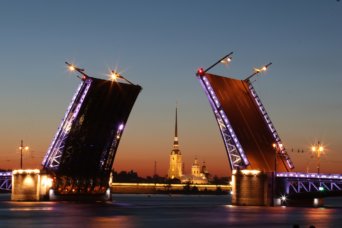- About
- Topics
- Story
- In-Depth
- Picks
- Opinion
- News
- Donate
- Signup for our newsletterOur Editors' Best Picks.Send
Read, Debate: Engage.
| topic: | Health and Sanitation |
|---|---|
| located: | Russia, Belarus |
| editor: | Igor Serebryany |
In an attempt to contain the coronavirus pandemic, Russia followed the case of many other countries and closed its borders to foreign nationals effective Wednesday, March 18.
Russia is surrounded by 14 other countries. To fight spreading the Covid-19 contagion, the government has allocated $4 billion. The other measures include tax breaks for airlines and the travel industry, closing schools and colleges, lift of ban of importing medical drugs by private persons and even some easing of traffic rules.
The city of Moscow, in particular, introduced its own quarantine until April 12. The measures include, in addition to the nation-wide ones, an entry ban for non-residents, cutting railway commuting with the neighbouring regions and even (optionally) closing of the subway system and (also optionally) introducing a night-time curfew.
Despite measures being more or less similar to those practiced by other EU countries, the U.S. and Canada, Russians suspect their government may use the "counter-virus" policy to further restrict their rights and freedoms.
Unlike many Western countries, the Russian population has experienced a 70-year-long "curfew" during the Soviet period of their history*. Now they foresee that the Kremlin could "forget" to lift the emergency even after the epidemy will have been ceased.
Local travel savvies used to say that if Russia reinstates the Soviet-style exit visas for its nationals, they could use the Belorussian or Lithuanian "peepholes" to sneak out of this country. Russia has the Schengen-type transparent border with Belarus since 1996, and its Kaliningrad enclave at the Baltic Sea is connected to the mainland with a railway link crossing Belarus and Lithuania.
However, on March 17 Russia closed its border with Belarus, thus plugging the peephole. Russian Railways announced the trains to Kaliningrad will cross the two countries without letting the travelers out on the transit stations outside the Russian territory. This is how Vladimir Lenin made it into Russia from Switzerland in 1917 via Germany and Sweden.
Such expectations are another manifestation of the panic, the analyst in the Center for Political Conjuncture Dmitry Abzalov believes.
"To insulate the country is economic suicide. The Soviet Union could afford permanent self-insulation and the human traffic was negligent. Russia's economy just can't exist without a permanent flow of resources, human resources including, with the outer world", he says.
Abzalov believes that Russia can only be hermetically insulated if its neighbouring countries agree with it. Otherwise, those wanting to emigrate will do that by hook or by crook.
"Even the United States can do little to cut the immigrant flow at its only protected border with Mexico. And Russia has thousands of kilometres of unprotected borders with Kazakhstan and Belarus", he adds.
Reached by phone in a train on its way from Minsk to Moscow, an expert in the People's Diplomacy foundation, Alexei Kochetkov, described the situation in Belarus as seen. "I've just crossed the Belarus-Russia border. Nearly all my fellow travellers are Russian citizens rushing to 'repatriate' before Wednesday midnight. They are afraid to find themselves interned after the border is closed", he says.
Still, he agrees with Abzalov that Russia will unlikely "forget" to reopen its borders after lifting the virus emergency. "This is futile both economically and technologically. Russian trade, sports, economy won't survive a month without foreign connections", he stresses.
According to the expert, Belorussian nationals have found themselves in a worse situation compared to the Russians. "Western countries used to reluctantly issue visas for Belorussian citizens. For most Belorussians, Russia is the only "foreign" country they can visit for leisure and work. Starting today, that destination is closed for them too," he says.
*In Soviet time Moscow was hermetically closed twice for their own citizens: during the Olympics in 1980 and Youth Festival in 1985.
Image: KiraHundeDog / Pixabay
